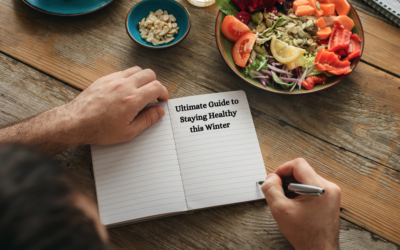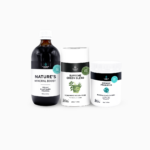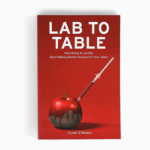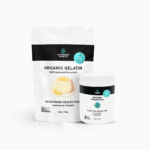Have you ever struggled to understand why you are gaining weight or finding it difficult to lose weight?
It might not all come down to what you are eating. Factors like stress and external toxins can play a role too.
Our nutritionist Sheridan lives by the mantra: ‘Eat to be well, not to be thin’. She believes in eating the kinds of food your body needs – real, whole food, not processed, packaged foods full of non-food additives – and says reaching, or maintaining, your ideal weight will be a natural byproduct of this way of eating.
However, it’s not all about food. In the video below, Sheridan discusses the main causes of weight gain or difficulty in losing weight. You might be surprised to learn that things such as the cookware you are using could be contributing to your weight issues. She also reveals her tips for eating well and shares her typical daily food plan.
The Main Takeaways From This Video
- Inflammatory foods: High inflammatory foods cause weight gain. This is because our immune system fights them, producing more water in the body. Examples of inflammatory foods are wheat, gluten, corn, soy and vegetable oils. These are all things we have tampered with and modified over time, although organic versions may be tolerated by some people. Sheridan encourages us to think about how we prepare these foods – soy is better tolerated when it’s fermented, for example.
- High blood sugar levels: Sugar and carbohydrates can cause our blood sugar levels to spike. They produce glucose in our bloodstream, which in turn produces insulin and part of insulin’s role is to store fat. Sheridan explains how these foods have their place, but not in excessive amounts.
- Toxicity: Toxins are stored in our fat cells. Toxins can be found in the foods we eat, such as the mercury found in some fish. Toxins also include the aluminium in some cookware, and the various nasties found in some skincare products and even in the water we may be drinking.
- Gut health: It’s not just external toxins we have to be aware of – imbalances in the gut can produce toxins. That’s why it’s so important to remember that what we eat directly influences what’s in our gut. Anti-inflammatory foods such as green vegetables and good fats like cold-pressed oils lead to a better balance of good gut bacteria.
Our fortnightly Facebook Live sessions are a great way to get the answers to the questions you need. Let us know what other topics you would like us to cover during these sessions in the comments below!
Follow our Facebook page for details of our next Facebook Live session – see you then!









0 Comments